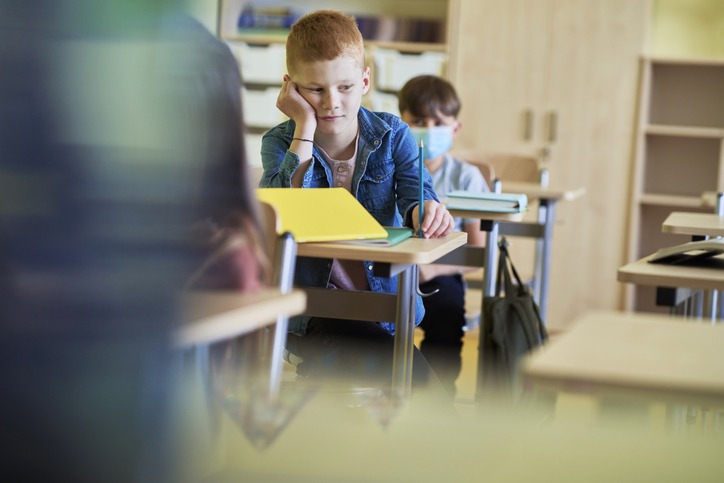
As reported by The Guardian, young children are excluded from schools in England as the lockdown’s impact takes its toll, leaving many still in nappies or struggling to communicate, sparking concerns over the lack of early support and resources for struggling families
Nearly half of children in some areas arrive unable to talk and still not potty-trained as lockdown legacy takes its toll, data shows
Children as young as four are being excluded from schools in England in increasing numbers as they struggle to cope in a classroom setting, with many still in nappies or unable to talk fully.
According to the latest government data, 11,695 children aged five and under were given fixed-term exclusions in England in the 2021-22 academic year, which was 11% higher than 2018-19.
In some schools in deprived areas up to 40% of reception children are also now arriving at school not yet potty-trained, the Observer has been told. Experts say many more children are starting school with undiagnosed language and learning difficulties which can lead to behavioural problems.
Charities say cuts to public services mean many are not seen by a health visitor at two and a half as they should be, and the closure of children’s centres has resulted in struggling families falling beneath the radar.
Anne Longfield, the government’s former children’s commissioner, who now chairs the independent Commission on Young Lives, told the Observer: “Anyone who discovers that children of four, five and six are being excluded is in utter shock. It just feels so wrong.”
Her commission has taken evidence of “huge rises” in children entering reception at four not yet potty-trained. One head she spoke to before the summer said that out of 70 children in reception about 30 were not potty-trained, and about a third were coming into school in pushchairs.
“We’ve been told that many children starting school have speech and language delays because they have had dummies in their mouths for so long over the pandemic and since,” she added.
Longfield argues that a lack of early support for struggling families, combined with undiagnosed special educational needs, has caused an “outbreak” of very young children who can’t cope in a classroom environment.
Jane Harris, chief executive of the charity Speech and Language UK, which published research in September showing that 1.9 million children are behind with talking and understanding words, said that insufficient health visitors meant “loads of children aren’t being seen at two and a half years old as they should be”.
More than half of teachers have told the charity they don’t know how to help children with speech and language difficulties, and Harris says schools that are struggling to recruit and retain teaching assistants because of low pay often don’t have enough staff to give extra support.
Dr Sarah Martin-Denham, associate professor of care and education at Sunderland University, who has made a series of films with excluded children and their parents, said that schools are often excluding four and five-year-olds to push the local authority to place them somewhere else. But she warns that this may backfire. “There just aren’t enough specialist places at the moment and these are very young children,” she said.
“If your five-year-old child is excluded you feel blamed. Some are frightened to reach out in case it all escalates and their child is excluded permanently. So they just keep their heads down.”




Be the first to comment